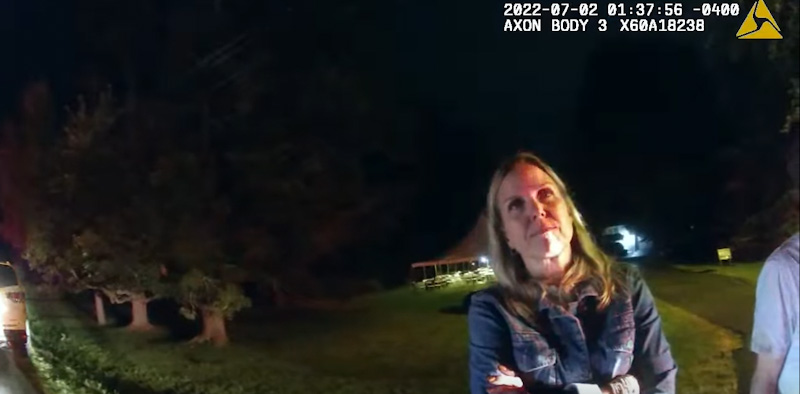Legal career lessons from Mount Everest
For many of us, building a legal career is like climbing a mountain. It’s an obvious analogy; you put in lots of hard work, never taking your eye off the prize at the top. Working through the pain by visualizing the euphoric view at the peak. After thousands of hours spent climbing toward the top, your career pinnacle—making partner at a top-tier firm—will be in reach.
But before you strap on your metaphorical crampons to start another day, consider this: Building your career may be like climbing a mountain, but if you’re going to embrace the metaphor, don’t imagine an ordinary mountain; set your sights on making that mountain your personal Mount Everest.
Eternal allure of Everest
At 29,032 feet, Mount Everest is the world’s tallest peak. It’s also the most dangerous, with hazardous avalanches and lethally temperamental weather. It even has a designated “death zone” above 26,000 feet, in which the air is so thin that bottled oxygen is required. Still, the unmatched thrill of summiting Everest continues to attract so many climbers there are “traffic jams” in the death zone.
The pitfalls and perils of Mount Everest were made clear to me in an excellent TEDx talk by Alison Levine, a superstar mountaineer who has climbed it twice and completed the Adventure Grand Slam (summiting the tallest peak on each of the world’s seven continents and skiing to both the North and South Poles). Levine’s TED talk applied essential mountaineering advice to navigating one’s career. One of her toughest lessons deeply resonated with me and my own career journey. It’s about the need to return to “base camp.”
Mount Everest’s base camp is at 17,000 feet, and it’s the place climbers repeatedly return to in their monthslong quest to reach the summit. It’s hard to be patient with the back and forth, up and down the mountain. But Levine said you’ve got to get used to the altitude with acclimatization. You want to stay up high, but you’ve got to come back to base camp to eat, sleep and gain strength. You need to recognize that even though you’re going backward, you’re making progress.
In today’s evolving work landscape, it’s particularly important to understand that returning to career base camp is not admitting to failure. Making a lateral move, taking a job with a lesser title or retreating to acquire more skills is sometimes necessary to move onward and upward. You might think your legal career is going backward, but in fact, you’re making progress.
My base camp
In my case, my career base camp was located at Google, headquartered in Mountain View, California. Prior to my arrival there, I had been on a partner track at the London office of Cleary Gottlieb, a white shoe international firm with 1,200 lawyers and dozens of top-tier rankings. I would not be on anything resembling a partner track at Google, where I’d taken a job as a contracts manager.
It was the first time in my life that a personal decision had taken priority over a professional one; after a lot of soul-searching and careful consideration, I decided that my ultimate goal was to have a family and a more balanced life than the one I would likely have if I were ever to make partner at a BigLaw firm.
It wasn’t easy, but I retreated from the idea of summiting the legal world’s Mount Everest. Even more sobering, the contracts manager job at Google was not even on an in-house counsel track.
Still, I was extremely grateful that Google took a chance on me, allowing me to relocate from London to Oakland, California, where the firefighter I’d recently become engaged to lived.
Life at base camp
I’m not going to lie: Taking a step down in job title was a blow to my ego. And I felt that because I moved backward in my career at Google, I needed to constantly prove myself to colleagues and to internal clients, over and over again, to show them I was promotable and, in fact, deserving of the counsel title.
I put my head down and worked hard, negotiating successful vendor contracts for Google. I studied the lawyers there who were on a counsel track and emulated their moves where it made sense. In the process, I realized that my style of being empathetic while also seeking excellence around me was and is valued. I leaned into that, and my in-house legal career began to spike.
In seven years at Google, I rose from contracts manager to senior counsel to head of Cloud go-to market legal. In this final role, I led a team of lawyers to support Google Cloud, one of Google’s fastest-growing global business units.
Still, another career peak called out to me. I was approached with an opportunity to become general counsel at Everlaw, a “double unicorn” software company serving the legal industry. (In Silicon Valley, a unicorn is a company valued at $1 billion, a metonym for “superstar technology.” Everlaw’s most recent round of venture financing valued the company at $2.1 billion.) I made the difficult decision to leave Google because Everlaw presented a special opportunity to join a company whose values not only aligned with mine, but also whose platform helps legal professionals like me by unlocking the collaborative power of litigation and investigative teams.
Initially, Everlaw offered a unique opportunity to build and run an entire legal organization; I was excited by the chance to expand my career as an executive leader supported by a team of extremely smart, collaborative colleagues. Two years later, in August 2022, my leadership contributions to the company were rewarded with a promotion to chief legal officer, Everlaw’s first.
Having scaled this new pinnacle, a remarkable personal ascent from my cubicle at Google, I realize that my grind as a contracts manager was my return to base camp, fortifying me to conquer a different kind of legal career.
Manifesting your own Everest
In the legal world, figuring out your own Everest is a holistic and very personal decision. The Mount Everest we hear about so much in law school, becoming a partner at a top-tier firm, is worthwhile and satisfying for the many lawyers who achieve it. For several years, I was sure that was what I wanted, but in-house counsel turned out to be my true north and a better fit for the family life I wanted.
Others will choose private practice, public interest or nonprofit work. All of these directions are as important to the world and as fulfilling as BigLaw to those who choose a career outside it.
No matter where you are in your legal career, it’s never too late to find your personal Everest and manifest it, even if it means temporarily returning to base camp. If I can do it, so can you—and I’ll see you at the summit.
Shana Simmons is the chief legal officer at Everlaw, a cloud-based e-discovery platform that unlocks the collaborative power of litigation and investigative teams. She leads the legal department and is responsible for all legal, regulatory, privacy and governance, risk and compliance issues across the company. Previously, Simmons was head of Google Cloud’s go-to market legal department after starting her legal career as an associate at Cleary Gottlieb Stein & Hamilton in New York and London.
ABAJournal.com is accepting queries for original, thoughtful, nonpromotional articles and commentary by unpaid contributors to run in the Your Voice section. Details and submission guidelines are posted at “Your Submissions, Your Voice.”
This column reflects the opinions of the author and not necessarily the views of the ABA Journal—or the American Bar Association.






